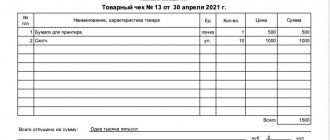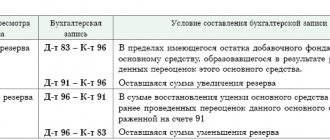Why do you need an order?
It would seem that there is nothing simpler: cancel the business trip. Some enterprise employees actually believe that a verbal order from the head of the organization is sufficient for this, but this is not entirely true. The fact is that any action taking place within the company is always strictly regulated by various kinds of documentation. Business trips are no exception.
If the highest official of the organization decides to send one of his subordinates on a business trip, a corresponding order is issued about this. Based on it, all kinds of travel papers are subsequently drawn up, accounting and personnel operations are carried out, etc. Likewise, if a decision is suddenly made to cancel a trip, a new order must be issued that will launch the necessary process within the enterprise.
The consequence of the order is usually the cancellation of previously issued documents (travel certificates, passes, directions, etc.), surrender of tickets, funds issued for a business trip, etc.
Taxation of expenses for canceled business trips
Income tax
When issuing an advance to an employee for a business trip, no expenses arise in the tax accounting of the organization (Clause 14, Article 270 of the Tax Code of the Russian Federation).
Travel expenses are included in other expenses associated with production and sales on the date of approval of the advance report, provided that the expenses incurred meet the criteria listed in paragraph 1 of Art. 252 of the Tax Code of the Russian Federation (clause 12, clause 1, article 264, subclause 5, clause 7, article 272 of the Tax Code of the Russian Federation).
The question of whether it is possible to take into account expenses for failed business trips for profit tax purposes is controversial.
Thus, according to the Ministry of Finance of Russia and the Federal Tax Service of Russia, the costs of processing and issuing visas for failed business trips cannot be taken into account for profit tax purposes, since they do not meet the criteria established by paragraph 1 of Art. 252 of the Tax Code of the Russian Federation (clause 1 of the Letter dated May 6, 2006 N 03-03-04/2/134, clause 1 of the Letter of the Federal Tax Service of Russia dated November 25, 2011 N ED-4-3/ [ email protected] ).
At the same time, the Federal Tax Service of Russia for the city of Moscow in Letter dated December 23, 2005 N 20-12/95309b allows for the possibility of accounting for the costs of a failed business trip subject to two conditions: the presence of primary documents confirming the costs of the business trip as a whole for a certain period (including registration and issuance of visas); compliance of these expenses with the requirements of paragraph 1 of Art. 252 of the Tax Code of the Russian Federation.
In addition, the Letter of the Ministry of Finance of the Russian Federation dated May 18, 2018 N 03-03-07/33766 sets out the following point of view:
According to paragraph 1 of Article 252 of the Tax Code of the Russian Federation (hereinafter referred to as the Tax Code of the Russian Federation), expenses are recognized as justified and documented expenses (and in cases provided for in Article 265 of the Tax Code of the Russian Federation, losses) made (incurred) by the taxpayer.
Justified expenses mean economically justified expenses, the assessment of which is expressed in monetary form.
Documented expenses mean expenses confirmed by documents drawn up in accordance with the legislation of the Russian Federation, or documents drawn up in accordance with business customs applied in the foreign state in whose territory the corresponding expenses were made, and (or) documents indirectly confirming expenses incurred (including customs declaration, business trip order, travel documents, report on work performed in accordance with the contract).
Any expenses are recognized as expenses, provided that they are incurred to carry out activities aimed at generating income.
According to paragraph 2 of Article 265 of the Tax Code of the Russian Federation, for the purposes of Chapter 25 “Income Tax of Organizations” of the Tax Code of the Russian Federation, losses received by the taxpayer in the reporting (tax) period are equated to non-operating expenses.
Thus, in case of cancellation of a business trip, the taxpayer has the right to take into account the losses incurred by him when forming the tax base for corporate income tax, subject to compliance with the criteria specified in paragraph 1 of Article 252 of the Tax Code of the Russian Federation, and provided that such expenses are not specified in Article 270 of the Tax Code of the Russian Federation .
That is, according to this letter, even if an employee, for whose business trip tickets have already been purchased and housing paid for, does not go anywhere, the losses incurred due to the cancellation of the business trip may reduce the “profitable” base.
Further, it should be noted that the Tax Code of the Russian Federation does not make the recognition of expenses dependent on whether a business trip took place or not, and the economic justification of expenses is not made dependent on the resulting economic (or other useful) effect.
If the planned business trip is related to activities aimed at generating income, then the documented expenses reimbursed to the employee associated with its preparation should be recognized as satisfying the requirements of paragraph 1 of Art. 252 of the Tax Code of the Russian Federation, although the business trip did not take place for justified reasons.
We also note: the list of expenses recognized for profit tax purposes is not closed, and therefore there is no need to prove that expenses for a failed business trip can be recognized as travel expenses taken into account in accordance with paragraphs. 12 clause 1 art. 264 Tax Code of the Russian Federation.
That is, expenses for failed business trips can also be taken into account as part of other expenses associated with production and sales, based on paragraphs. 49 clause 1 art. 264 Tax Code of the Russian Federation.
Taking into account the above, the taxpayer has the right to take into account expenses for a failed business trip when forming the tax base for corporate income tax, if the expenses incurred by the organization meet the criteria specified in paragraph 1 of Article 252 of the Tax Code of the Russian Federation, and provided that such expenses are not specified in Article 270 of the Tax Code RF.
The basis for accounting for costs will be the employee’s advance report confirming the expenses incurred, as well as the manager’s order to cancel the business trip indicating the reason for such cancellation.
These expenses are recognized on the date of approval of the advance report (clause 5, clause 7, article 272 of the Tax Code of the Russian Federation).
At the same time, there is a possibility that the organization will have to defend this position in court.
Personal income tax (NDFL)
In accordance with paragraph 1 of Art. 217 of the Tax Code of the Russian Federation, when an employer pays a taxpayer expenses related to a business trip, the income subject to taxation does not include daily allowances paid in accordance with the law, but not more than 700 rubles for each day of being on a business trip in Russia and not more than 2,500 rubles for each day of being on a business trip outside the territory of Russia. And:
- actually incurred and documented target expenses for travel to the destination and back;
- airport service fees, commission fees;
- expenses for travel to the airport or train station at places of departure, destination, transfers, and baggage transportation;
- expenses for renting living quarters, paying for communication services, obtaining and registering an official or diplomatic passport, obtaining visas;
- expenses associated with the exchange of cash or a check at a bank for cash foreign currency.
At the same time, according to the official position, the cancellation of a business trip does not change the qualification of this type of payment, such as reimbursement of expenses for obtaining visas. In this regard, payments made to the employee to reimburse the costs of obtaining a visa are not subject to personal income tax even in the event of cancellation of a business trip (clause 2 of the Letter of the Ministry of Finance of Russia dated May 6, 2006 N 03-03-04/2/134).
Thus, when an employer pays an employee for expenses for business trips of employees both within the country and abroad, the income subject to personal income tax does not include travel expenses. Namely: daily allowances within the limits established by law, as well as actually incurred and documented targeted expenses, including fees for issuing (receiving) and registering an official foreign passport, fees for issuing (receiving) visas, are not subject to personal income tax.
Insurance contributions for compulsory social insurance
It should be noted that the procedure for calculating and paying insurance premiums does not depend on the fact of cancellation of a business trip.
Actually incurred and documented targeted expenses, including fees for issuing (receiving) visas when sending an employee on a business trip, are not subject to insurance contributions (clause 2 of Article 422 of the Tax Code of the Russian Federation, clause 2 of Article 20.2 of the Federal Law of July 24, 1998 N 125-FZ “On compulsory social insurance against accidents at work and occupational diseases”).
At the same time, not a ch. 34 of the Tax Code of the Russian Federation, nor Federal Law N 125-FZ do not mention such an expense as payment for compulsory medical insurance, and do not directly provide that this expense reimbursed by the employer to the employee is not subject to insurance premiums.
According to clarifications from the Federal Social Insurance Fund of the Russian Federation and the Ministry of Labor of Russia, the amount of payment for a visa and medical insurance, the presence of which is a prerequisite for obtaining a visa when sending an employee on a business trip to the territory of foreign countries, is not subject to insurance premiums. Including in the case of cancellation of a business trip by order of the manager, since the qualifications of this type of payment do not change (clause 2 of the Appendix to the Letter of the Federal Social Insurance Fund of the Russian Federation dated April 14, 2015 N 02-09-11/06-5250, Letter of the Ministry of Labor of Russia dated November 27. 2014 N 17-3/В-572)
Thus, actually incurred and documented targeted expenses for travel to the destination and back, both within the territory of the Russian Federation and outside the territory of the Russian Federation, are not subject to insurance premiums.
Insurance contributions for compulsory pension insurance are also not accrued on the amount of expenses of the organization for processing and issuing visas.
Who should sign the order to cancel a business trip?
Any order always comes from the main person of the enterprise - the director (or an employee temporarily performing his duties), accordingly, the document must first of all have his signature.
Also, all employees who are indicated in it (i.e., those who are directly affected by the order and those who are responsible for executing the order) must sign the order.
It is necessary to certify a finished order with a seal only when this is a condition expressed by the management of the organization.
Value added tax
Tax deduction for VAT
Clause 7 of Art. 172 of the Tax Code of the Russian Federation establishes that tax amounts paid on business trip expenses (travel expenses to and from the place of business travel, including expenses for the use of bedding on trains, as well as expenses for renting living quarters) and entertainment expenses accepted are subject to for deduction when calculating corporate income tax.
Tax deductions provided for in Art. 171 of the Code, are made on the basis of invoices issued by sellers when the taxpayer purchases goods (work, services), or on the basis of other documents in the cases provided for in paragraphs 3, 6 - 8 of Art. 171 of the Code (for example, on the basis of an air ticket issued on a standard form).
At the same time, on the basis of clause 18 of the Rules for maintaining a purchase book used in calculations for value added tax, approved by Decree of the Government of the Russian Federation of December 26, 2011 N 1137, when purchasing services for transporting employees to the place of business travel and back, the completed in accordance with the established procedure, strict reporting forms or copies thereof with the amount of value added tax highlighted as a separate line, issued to the employee and included by him in the business trip report.
Thus, in general, by virtue of paragraphs. 1, 7 tbsp. 171 of the Tax Code of the Russian Federation, the taxpayer has the right to reduce the total amount of calculated VAT by the amount of tax paid on business trip expenses (travel expenses to the place of business trip and back, including expenses for the use of bedding on trains, as well as expenses for renting residential premises) and entertainment expenses accepted for deduction when calculating corporate income tax.
VAT on travel expenses is deducted on the basis of invoices or other documents (for example, on the basis of an air ticket issued on a prescribed form), after the said expenses have been registered in the presence of the relevant primary documents (clause 1 of Article 172 of the Tax Code of the Russian Federation).
At the same time, one of the mandatory conditions for deducting VAT amounts presented to the taxpayer when purchasing goods (work, services), property rights on the territory of the Russian Federation is the registration of these goods (work, services), property rights (second paragraph of clause 1 Article 172 of the Tax Code of the Russian Federation).
This provision also applies to VAT amounts paid on business travel expenses.
Let's look at an example:
VAT on transportation ticket
Deduction of the amount of VAT allocated in a ticket purchased by an organization for a posted employee is possible only when transportation services are provided and the corresponding expenses are taken into account.
The ticket itself only certifies the conclusion of a contract for the carriage of a passenger (clause 2 of Article 786 of the Civil Code of the Russian Federation), but not the fact of provision of transportation services.
In this case, due to the return of the air ticket, transportation services were not actually provided, i.e. no travel expenses are incurred.
Consequently, the organization does not have the right to tax deduction of the amount of VAT indicated on the airline ticket (see Letter of the Federal Tax Service of Russia dated April 25, 2014 N GD-4-3/8194).
That is, the organization in the situation under consideration will not be able to deduct the amount of VAT allocated in a ticket not used by the employee.
A similar approach should be applied to other expenses with allocated VAT, which the organization wishes to claim as a deduction from the budget.
Storing an order
Administrative documentation is subject to certain storage requirements. In particular, after creating an order and familiarizing all interested parties with it, the document should be filed in a folder with other similar acts. He must remain in it for the period specified in the company’s local papers or for the period established by Russian legislation.
After the relevance of this document expires, it can be transferred to the archive or destroyed (also in compliance with the procedure specified in the law).




